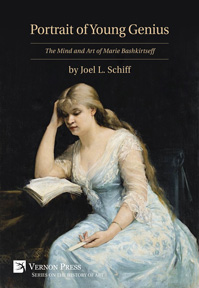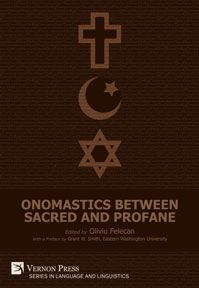Purchase this book
(click here to change currency)
Prof. Grant Smith is a well-known researcher with an excellent reputation in the onomastic world. For several decades he has had an intense activity, quantified by publications in scientific journals, proceedings, participation in congresses and conferences in America, Europe, Israel, and administrative functions in top organizations such as ANS and ICOS.
In "Names as Metaphors in Shakespeare’s Comedies", the author proposes a collection of analytical essays on Shakespeare’s fourteen comedies plus an introduction. This book offers a novel perspective on the names of characters in Shakespeare's comedies. From the author's perspective, literature is not propaganda, with arguments for ideas and policies, but an expression of basic human emotions.
With extensive experience in literary onomastics, onomastic theory, and semiotics, Professor Grant W. Smith crowns with this volume his longstanding interest in anthroponymic analysis and Shakespeare’s plays.
Dr Oliviu Felecan
Technical University Of Cluj-Napoca
North University Center Of Baia Mare, Romania
The doyen of onomastics undertakes the attempt to explain Shakespeare's names' poetic effects and analogical meanings. He succeeds by this impressive work to demonstrate the symbolic meaning of anthroponyms and proper names in general that transcends by far their formal function of designation. Besides his systematic and analytical approach towards the use and role of names in literature, he also provides a colorful insight into how a poetry champion played with name symbolism. Thus, the book covers a wide range from laying a theoretical basis for literary onomastics to better understand a great poet and his works. Onomasticians, as well as everybody interested in exploring the wealth of literature, will enormously benefit from it.
Dr Peter Jordan
Austrian Academy of Sciences, Co-chair, Joint ICA/IGU Commission on Toponymy
'Names as Metaphors in Shakespeare’s Comedies' presents a comprehensive study of names in Shakespeare’s comedies. Although names are used in daily speech as simple designators, often with minimal regard for semantic or phonological suggestiveness, their coinage is always based on analogy. They are words (i.e., signs) borrowed from previous referents and contexts, and applied to new referents. Thus, in the literary use of language, names are figurative inventions and have measurable thematic significance: they evoke an association of attributes between two or more referents, contextualize each work of literature within its time, and reflect the artistic development of the writer.
In the introduction, Smith describes the literary use of names as creative choices that show the indebtedness of authors to previous literature, as well as their imaginative descriptions (etymologically... and phonologically) of memorable character types, and their references to cultural phenomena that make their names meaningful to their contemporary readers and audience. This book presents fourteen essays demonstrating the analytical models explained in the introduction. These essays focus on Shakespeare’s comedies as presented in the First Folio. They do not follow the chronological order of their composition; instead, the individual essays give special attention to differences between the plays that suggest Shakespeare’s artistic development, including the varied sources of his borrowings, the differences between his etymological and phonological coinages, the frequency and types of his topical references, and his use of epithets and generics.
This book will appeal to Shakespeare students and scholars at all levels, particularly those who are keen on studying his comedies. This study will also be relevant for researchers and graduate students interested in onomastics.
He can be reached at gsmith@ewu.edu.
Show more
Abstract
Preface
Acknowledgements
Introduction
Chapter 1 The Tempest
Chapter 2 The Two Gentlemen of Verona
Chapter 3 The Merry Wives of Windsor
Chapter 4 Measure for Measure
Chapter 5 The Comedy of Errors
Chapter 6 Much Ado About Nothing
Chapter 7 Love’s Labour’s Lost
Chapter 8 The Merchant of Venice
Chapter 9 A Midsummer Night’s Dream
Chapter 10 As You Like It
Chapter 11 The Taming of the Shrew
Chapter 12 All’s Well... That Ends Well
Chapter 13 Twelfth Night, or What You Will
Chapter 14 The Winter’s Tale
Abbreviations used for Shakespeare plays
Collated Index of Names and References in Shakespeare’s Comedies
Works cited
Index Show more
Professor Grant W. Smith retired in 2020 from the Eastern Washington University after serving as faculty president, department chair, vice-provost, and for many years as Coordinator of Humanities. He has been the principal investigator for grants from the USGS and continues as a member of the Washington State Committee on Geographic Names. He has also served as president of the American Name Society, vice-president of the International Council of Onomastic Sciences, and regional secretary of the American Dialect Society. His most recent publications have focused on communication theory and the... philosophical theories of language. He has been a plenary speaker at numerous international conferences and has taught as Distinguished Visiting Professor at the Belarusian State University in Minsk and as a guest lecturer at the University of Basilicata in Italy. Show more
Shakespeare, Reference, Sign, Symbol, Analogy, Comedy
See also
Bibliographic Information
Book Title
Names as Metaphors in Shakespeare’s Comedies
ISBN
978-1-64889-364-3
Edition
1st
Number of pages
371
Physical size
236mm x 160mm

![Names as Metaphors in Shakespeare’s Comedies [Paperback]](/file/16045/3a06879993bed11bd21f03059fc17e79/1638541334.jpg)







